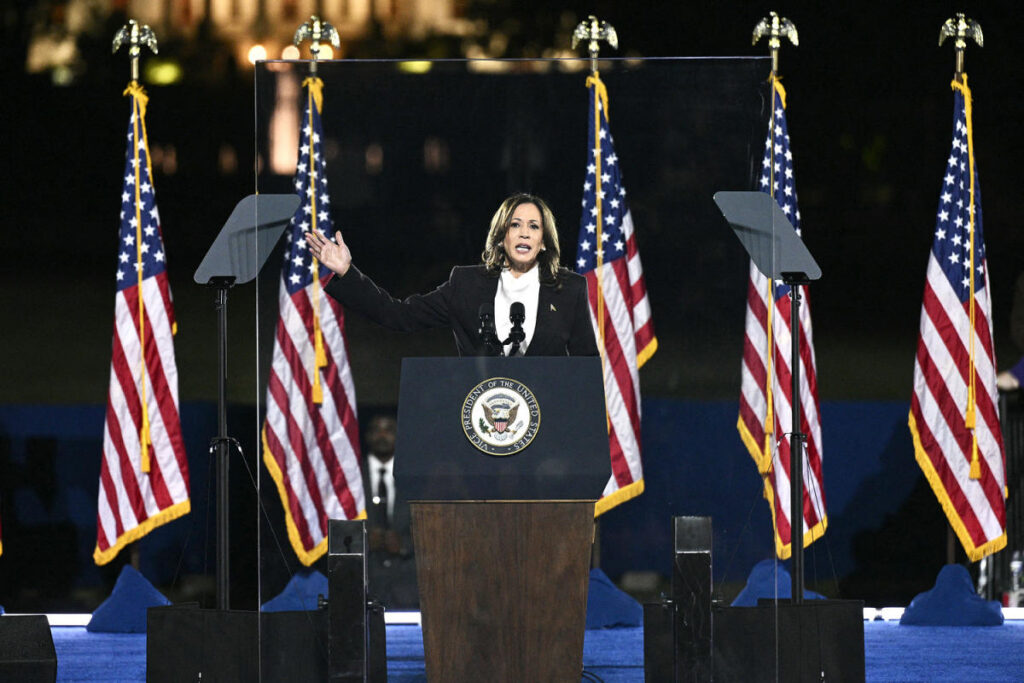As the tension builds ahead of Election Day, Vice President Kamala Harris and former President Donald Trump deliver starkly contrasting closing arguments. With a rally at The Ellipse, the location associated with the January 6 insurrection, Harris’s message focused on unity and healing, pressing her belief that the country must move beyond Trump’s “unstable” leadership. Although she emphasized her commitment to “seek common ground” and prioritize America over party lines, her message faced scrutiny following President Biden’s controversial remarks during a Latino outreach event, where his comments about Trump supporters were perceived as divisive. In contrast, Trump’s rhetoric has leaned heavily on addressing illegal immigration, vowing to abolish sanctuary cities and enforce strict border controls. However, his focus has occasionally faltered into personal attacks on rivals and remarks that detract from substantial policy discussions.
In another critical issue of the election, the healthcare system’s failures have manifested in the personal experiences of middle-class families grappling with exorbitant childbirth costs. The Hurley family’s experience reveals the harsh reality of high medical bills; despite possessing insurance, they still faced a debt of nearly $11,500 following the birth of their twins. Similarly, the Munges reported accumulating substantial credit card debt, exacerbated by medical expenses post-childbirth, highlighting a systemic issue where families earning a modest income find themselves unprotected in a broken healthcare system. With insufficient reforms in recent years, many families teeter on the brink of financial ruin, left to navigate a landscape that provides inadequate coverage during critical health milestones.
The unfolding global scenario is equally alarming, with North Korea’s involvement in the ongoing conflict in Ukraine raised as a potential tipping point for international relations. The U.S. Pentagon’s report on North Korean troops joining Russian forces illustrates a deepening partnership between the two nations, a relationship that might provide North Korea with critical combat experience and bolster its military efforts. Observers warn that this alliance could further escalate ongoing tensions, as North Korea stands to gain insights into modern warfare dynamics, a development that some analysts believe may enhance Kim Jong Un’s ambitions surrounding nuclear capabilities. The unfolding military operations indicate a critical intersection of geopolitical interests that complicate the landscape in both Eastern Europe and the Asia-Pacific.
Beyond the political and social turmoil, the world recently witnessed an extraordinary archaeological discovery in Mexico that uncovers a sophisticated ancient civilization long concealed by jungle growth. A Ph.D. candidate discovered remnants of a vast Mayan city which could have supported a population of around 50,000 at its height, vastly outpacing previous estimates. The use of aerial lidar technology revealed over 6,600 previously hidden structures, igniting curiosity about further undiscovered civilizations. Such breakthroughs not only broaden our understanding of human history but also invite speculation about the relics still hidden beneath the earth’s surface, contributing to the ongoing narrative of our cultural heritage.
In the wake of significant events, the sports world has remained just as engaging, with the New York Yankees’ notable comeback against the Los Angeles Dodgers during the World Series providing a minor reprieve from pressing news. Amidst the action, a peculiar incident where a fan attempted to wrest a foul ball from an opposing player’s glove added an element of unexpected excitement, showcasing how sports often serve as a communal anchor, offering entertainment during tumultuous times. Meanwhile, the international community faced the fallout from severe weather conditions, as flash floods in Spain resulted in tragic loss of life and widespread destruction, emphasizing the growing impact of climate change on daily life across the globe.
Additional unsettling news came from the judicial system, as David DePape received a life sentence for the violent attack on Rep. Nancy Pelosi’s husband, further exposing the contentious and often perilous nature of political discourse in today’s society. Along with the struggles facing medium-class families regarding healthcare, these instances reflect an alarming culture where political divisions manifest not only in speech but in acts of violence, raising broader concerns about the ideological rifts tearing social fabric apart. In striving for unity, leaders must confront the root causes of these tensions, seeking ways to bridge the divides that grow in public and personal spheres.
As the election approaches, the collective consciousness is shaped by these multifaceted issues—political rhetoric steeped in historical tension, the burden of crippling medical debt, the dangers of international conflicts, and the discovery of significant archaeological sites serving as a reminder of our shared human history. Voters are urged to reflect on the multitude of factors at play as they prepare to cast their votes, with the hope that leadership driven by genuine dialogue and equity may pave a way forward as society grapples with these enduring challenges.

